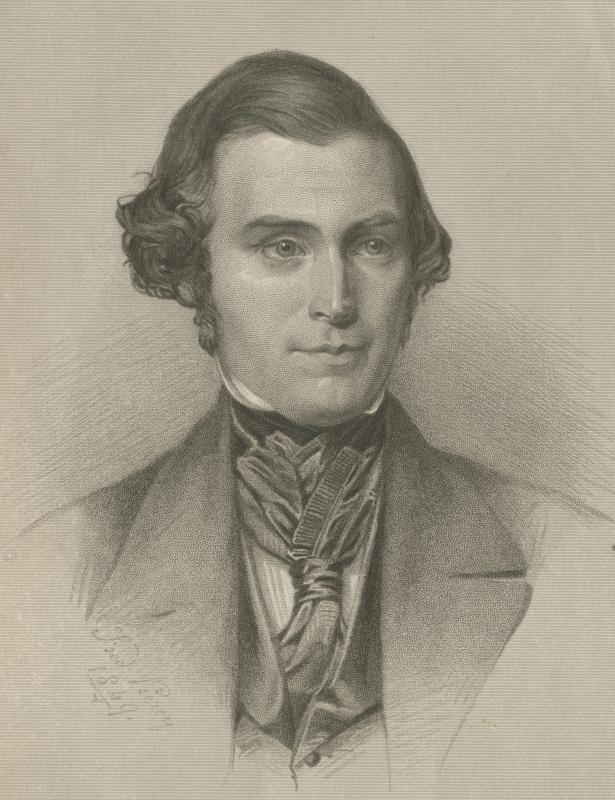Slavery, Priesthood Denial, and Brigham Young versus Orson Pratt
In the late winter of 1856, Brigham Young and other Latter-day Saint leaders decided that the time was right to made a second application for statehood. The citizens of Utah duly formed a constitutional convention and petitioned Congress to admit Utah into the Union under the name of Deseret. As it turned out, it was not a favorable moment to attempt such an effort. Two years earlier, Congress passed the Kansas-Nebraska Act which organized two new territories under the ambiguous provisions of Popular Sovereignty. This breached the old Missouri Compromise which prohibited slavery in the Louisiana Purchase north of latitude 36º30'. As a result, Kansas-Nebraska reignited a bitter conflict over slavery from which the nation would not recover. By the summer of 1856, Kansas Territory had collapsed into open conflict between pro and anti-slavery forces.[1]
Slavery prompted a passionate debate at Utah’s 1856 constitutional convention. Despite Brigham Young’s attempts to abate internal conflict over slavery with the Service Act, the convention of 1856 showcased the strong disagreements that continued to exist among the Latter-day Saints. This time, Orson Pratt and Brigham Young were on the same side as they jointly opposed a small faction of Southern delegates who wished to explicitly protect slavery in the proposed constitution. Enslavers, it seems, were not satisfied with the restrictive provisions of the Service Act and wished to abandon the neutral position that Latter-day Saint leaders had adopted toward slavery since the late 1840s. Feelings ran so high that some of the delegates actually demanded that their names be recorded as having voted for or against slavery in Deseret.[2]
While those events played out among territorial leaders, Latter-day Saints began to openly discuss the faith’s racial priesthood restriction. Orson Pratt and other apostles defended the ban in five newspaper articles published in the 1850s. Those racial restrictions thus became the lasting legacy of the heated debates of that decade, especially after the United States Congress outlawed slavery and involuntary servitude in all U.S. territories in 1862. Congress thus brought a legal end to slavery in Utah even though its end in practice—along with that of Native American servitude—remains obscure.
The documents contained here correspond with the narrative history in Chapter 9 of This Abominable Slavery.
- 6.1 a-e Excerpts from Newspapers, Latter-day Saint leaders discuss the racial priesthood restriction
- 6.2 a-c Delegates to the 1856 Utah Constitutional Convention debate whether Utah will apply as a slave or free state. Orson Pratt delivers an anti-slavery speech, March 22, 1856
- 6.3 Excerpt from New York Herald, Horace Greeley interviews Brigham Young on slavery
[1] Brent M. Rogers, Unpopular Sovereignty: Mormons and the Federal Management of Early Utah Territory (Lincoln: University of Nebraska Press, 2017), chapters 1 and 4.
[2] Utah Constitutional Convention Speeches, MS 2988, Church History Library, Church of Jesus Christ of Latter-day Saints, Salt Lake City, Utah; Minutes of Utah Constitutional Convention, Council House, March 21-27, 1856, MS 2988, Church History Library, Church of Jesus Christ of Latter-day Saints, Salt Lake City, Utah.

